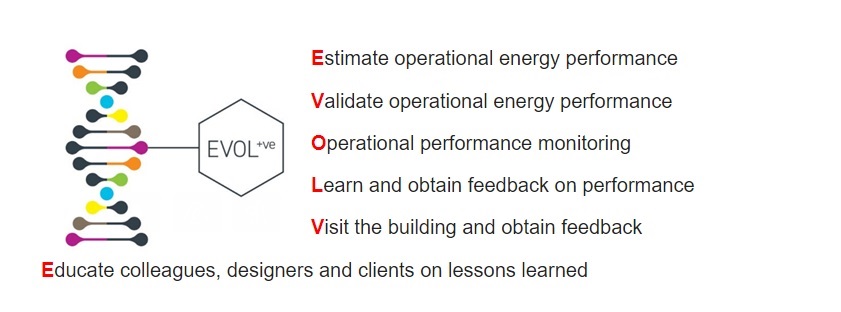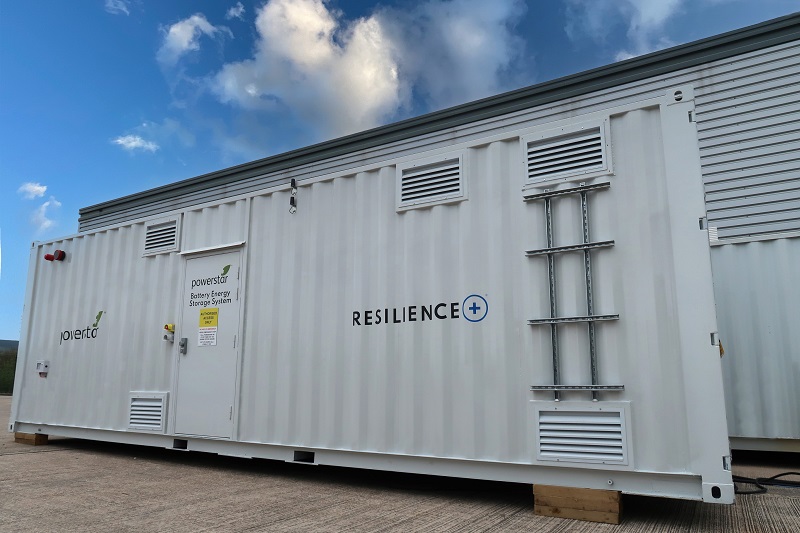Households across the UK are seeing monthly bills increasing significantly in light of rising energy costs.
And hospitals are also suffering as non-domestic customers are not subject to the electricity and gas price cap announced for England, Scotland, and Wales.
It is predicted that these increases could see some NHS trusts seeing their bills rising by more than £2m a year; and this is happening at the same time as the NHS is being charged to reduce carbon emissions to net zero by 2040.
An investigation by The BMJ found that hospital trusts are worried the rise in energy costs will leave them forced to make stark choice on staffing levels, waiting times, and the frontline care they provide to patients.
With costs escalating by 300% compared to last year, The BMJ research revealed that Nottingham University Hospitals NHS Trust has budgeted for a 214% increase in electricity and gas costs for 2022-23, as an extreme case of fuel costs.
A failure to properly compensate the NHS for inflation will only heighten pressure on our health service as we move towards a winter that we know will be particularly challenging this year
Great Ormond Street Hospital for Children NHS Foundation Trust in London said that it expected a combined gas and electricity bill of around £650,000 a month in January and February 2023 – a significant increase on the £350,000 paid in the same months this year.
And Sheffield Children’s NHS Foundation Trust said it expected its total energy bill for 2022-23 to be almost 130% higher than in 2021-22.
One trust even warned it was facing a £2m increase if action was not taken.
Overall, the NHS faces a £485m rise in the next year.
Rory Deighton, senior acute lead at the NHS Confederation, told The BMJ: “This isn’t an abstract problem, as the gap in funding from rising inflation will either have to be made up by fewer staff being employed, longer waiting times for care, or other areas of patient care being cut back.
“The NHS needs at least £3.4bn to make up for inflation during this year alone, and that is before we face a winter of even higher wholesale energy prices.
Winter pressures loom
“A failure to properly compensate the NHS for inflation will only heighten pressure on our health service as we move towards a winter that we know will be particularly challenging this year.”
But there is a silver lining for the healthcare sector as energy efficiency specialists continue to innovate, creating more-efficient technologies that will help lower energy use at the same time as supporting carbon net zero goals.
The cheapest energy is the energy you don’t use, but the NHS must have secure, resilient power – literally a matter of life and death
Chris Taylor, associate director at infrastructure consulting firm, AECOM, said: “Institutions and businesses are currently experiencing significant rises in expenditure because of rising energy costs; and the NHS is no different, with many of the buildings across its estate having significant backlog maintenance issues, which can contribute to inefficient building operation.
“AECOM is working closely with trusts and health boards in developing energy strategies that are aligned with a capital expenditure programme to reduce energy consumption and achieve their net zero commitments.
“The development of these energy strategies helps clients to budget their required investment in order to reduce energy consumption over the mid to long term.
“In the short-term AECOM has implemented its EVOL+VE initiative which can assist trusts in reducing their operational energy, efficiently operate their building, and maintain a comfortable environment for their staff and patients [see below].

AECOM is working closely with the NHS to review energy consumption and BMS data across buildings and estates and advise on ways to reduce current energy demands
“Through this initiative we work closely with clients and review their energy consumption and BMS data across buildings and estates and advise on ways to reduce current energy demands.
“The advice provided often includes adjusting set points and time schedules to ensure that the plant is operating efficiently and only when required.
“For example, outpatient departments may only by occupied for a third of the day, so ensuring that, wherever possible, the heating, ventilation, and air conditioning (HVAC) systems serving this department are turned off or set back as much as possible, means significant energy savings can be achieved.
“Where heat recovery devices are installed on air handling plant and equipment, it is essential to consider the set points and control of the AHU frost coil, energy-recovery device, cooling coil, and heater-battery to achieve the most-efficient operation for the maximum time.

Solar panel arrays can reduce the energy requirement from the National Grid and enable trusts to store energy onsite
Reducing electrical energy
“Facilities maintenance (FM) teams should also review the frequency of changing and cleaning filters within ventilation plant.
“Operating plant with dirty filters requires the fans to consume more electrical energy to overcome the increased pressure drop.
“Increasing the frequency of cleaning and changing filters can lead to a considerable reduction in electrical energy.
“In addition, many NHS buildings do not incorporate intelligent controls so training staff to use the spaces efficiently is crucial to ensuring that lighting and equipment is switched off in rooms when they are not being used.
“Where buildings incorporate sub-metering on a department or floor basis, the identification of local energy managers and leader boards which identify the greatest amount of energy saved can help provide a sense of ownership and encourage good energy conservation practices.”
Powerstar has also been working with the NHS to improve energy consumption for increased efficiency, better sustainability, and greater cost savings.
The flexibility of a BESS brings additional benefits; not least the ability to store energy generated onsite, such as solar panel arrays, to be used when needed, so reducing the requirement for energy from the grid at peak times when prices are highest
Alastair Morris, chief commercial officer, told BBH: “The cheapest energy is the energy you don’t use, but the NHS must have secure, resilient power – literally a matter of life and death.
“We have a range of technologies, including Battery Energy Storage systems (BESS) and voltage optimisation, and trusts across the UK are benefitting from the cost savings that start paying back on investment from the point of installation.”
Powerstar’s BESS is currently the only system of its kind to achieve HTM compliance for NHS installations and is helping trusts mitigate the impact of rising energy costs, while also reducing carbon emissions.
Evidence of this can be found at Rotherham General Hospital, where Powerstar installed a new BESS with Uninterruptible Power Supply (UPS) capabilities, which, through the greater efficiency inherent in the technology over traditional UPS, offers savings of around £225,000 per year, while also eliminating about 190 tonnes of CO2.
Morris said: “The flexibility of a BESS brings additional benefits; not least the ability to store energy generated onsite, such as solar panel arrays, to be used when needed, so reducing the requirement for energy from the grid at peak times when prices are highest.
“Additionally, it allows the hospital to engage with Grid Services and Demand Side Response, generating income and further reducing energy bills.
“This can add a new annual revenue stream for an average trust of around £100,000 a year.”

Powerstar's BESS can help trusts to mitigate the impact of rising energy costs while reducing overall carbon emissions
Heating and cooling
And Dave Palmer, general manager for the UK and Ireland at ICS Cool Energy, said cooling and heating technologies would play a vital role in the future.
He added: “The right temperature, humidity, and air quality are essential to ensure comfortable and healthy conditions all day and night, while sanitary hot water is just as vital for cleaning and hygiene in a hospital environment.
“In both cases a scarce or low-quality supply of cooling and heating is simply not acceptable.
“An energy efficiency audit is the right first step that opens the door to equipment tailored to a facility’s needs and identifies opportunities for energy-saving strategies.
“An audit, done by specialists, eliminates the guessing and delivers hard data on what, and how, to improve your system.
“Practically speaking, ‘Free Cooling’ is the cheapest and greenest way to provide cooling – reducing mechanical energy consumption and lowering carbon footprint.
As the Department for Business, Energy, and Industrial Strategy launches the third round of its Public Sector Decarbonisation Scheme, committing £635m for energy efficiency and clean technology into public sector projects, there is fresh funding available to help alleviate at least some impacts of the energy crisis
“And it is a solution that is easy to retrofit, space permitting, and can deliver a quick payback for the new equipment.”
Practically any organisation using an externally-sited chiller can benefit from free cooling.
“Whenever the outside temperature is low enough to cool down the fluid without the intervention of a chiller, we can implement a free cooling solution,” said Palmer.
“This can be in the form of partial free cooling, where the chiller’s compressors are still doing some of the work to cool, to full free cooling, where the full load on the chiller is offset.
“In contrast, an externally-sited chiller’s compressors with no free cooling capabilities will be working flat out to achieve the same.
“In the UK and Ireland, the relatively-cool climate and ambient temperatures allow for partial or full free cooling for much of the year. This means that substantial energy savings can be achieved, particularly between the months of October and April, in some cases reaching up to 80% electricity savings.”

BESS can further reduce energy bills by generating income from stored energy
Pump up the savings
Another effective intervention is heat pump technology.
Palmer explains: “Heat pumps rely on one of the most-energy-efficient methods of heating: the transfer of free thermal energy from outside to inside based on the difference in temperature between the two.
“What not everybody does, though, is look at cooling and heating at once – repurposing energy by integrating cooling and heating systems.
“Hospitals require all-year round cooling in operating theatres to keep vital IT equipment such as MRI scanners running, or to maintain the right temperature and humidity levels in cold storage for multiple purposes.
“If we equip the building with a heat recovery chiller, it will generate hot water as a by-product of the chilled water system.
“The system can provide heating when there is a demand, while storing the cooling energy through use of ice banks. This helps connect the heating and cooling demands within a 24-hour span.
“Modern installations can reduce, or eliminate, the need to run boilers by using heat pump technology that can produce hot water at a fraction of the cost – and when cooling is required at the same time – even for free.”
While spiralling energy costs are a significant threat to the safe operation of our National Health Service, there are technologies available now to help mitigate the worst of the immediate threats, which can also help trusts to look to medium- and longer-term efficiencies and priorities
But not everything comes for free, or has a super-quick payback period, so NHS trusts will be increasingly reliant on smart financing options and grants.
Morris said: “As the Department for Business, Energy, and Industrial Strategy (BEIS) launches the third round of its Public Sector Decarbonisation Scheme (PSDS), committing £635m for energy efficiency and clean technology into public sector projects, there is fresh funding available to help alleviate at least some impacts of the energy crisis.
“In previous round of the funding stream, NHS trusts bid successfully for many significant projects, such as Gloucestershire Hospitals NHS Foundation Trust, which was awarded over £13.5m to work with Vital Energi to install solar panels and battery storage to store the renewable energy generated onsite.”
He concluded: “While spiralling energy costs are a significant threat to the safe operation of our National Health Service, there are technologies available now to help mitigate the worst of the immediate threats, which can also help trusts to look to medium- and longer-term efficiencies and priorities.”




